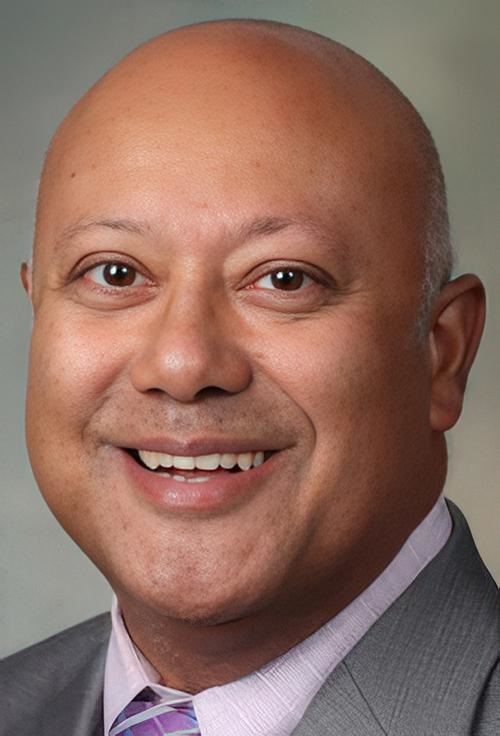Mayo Clinic Researchers Uses Exome Sequencing to Identify Individuals at Risk of Hereditary Cancer
Half of the people tested were unaware of their genetic risk for contracting the disease
Existing clinical laboratory genetic screening guidelines may be inadequate when it comes to finding people at risk of hereditary breast-ovarian cancer syndromes and Lynch syndrome (aka, hereditary nonpolyposis colorectal cancer). That’s according to a study conducted at the Mayo Clinic in Rochester, Minn., which found that about half of the study participants were unaware of their genetic predisposition to the diseases.
Mayo found that 550 people who participated in the study (1.24%) were “carriers of the hereditary mutations.” The researchers also determined that half of those people were unaware they had a genetic risk of cancer, and 40% did not meet genetic testing guidelines, according to a Mayo Clinic news story.
The discoveries were made following exome sequencing, which the Mayo Clinic news story described as the “protein-coding regions of genes” and the sites for most disease-causing mutations.
“Early detection of genetic markers for these conditions can lead to proactive screenings and targeted therapies, potentially saving lives of people and their family members,” said lead author Niloy Jewel Samadder, MD, gastroenterologist and cancer geneticist at Mayo Clinic’s Center for Individualized Medicine and Comprehensive Cancer Center.
The Mayo researchers published their findings in the journal JCO Precision Oncology titled, “Exome Sequencing Identifies Carriers of the Autosomal Dominant Cancer Predisposition Disorders Beyond Current Practice Guideline Recommendations.”

“This study is a wake-up call, showing us that current national guidelines for genetic screenings are missing too many people at high risk of cancer,” said lead author Niloy Jewel Samadder, MD (above), gastroenterologist and cancer geneticist at Mayo Clinic’s Center for Individualized Medicine and Comprehensive Cancer Center. New screening guidelines may increase the role of clinical laboratories in helping physicians identify patients at risk of certain hereditary cancers. (Photo copyright: Mayo Clinic.)
Advancing Personalized Medicine
“The goals of this study were to determine whether germline genetic screening using exome sequencing could be used to efficiently identify carriers of HBOC (hereditary breast and ovarian cancer) and LS (Lynch syndrome),” the authors wrote in JCO Precision Oncology.
Their work was a project of the Mayo Clinic Center for Individualized Medicine Tapestry study, which aims at advancing personalized medicine and developing a dataset for genetic research.
For the current study, Helix, a San Mateo, Calif. population genomics company, collaborated with Mayo Clinic to perform exome sequencing on the following genes:
- BRCA1 and BRCA2 genes (hereditary breast and ovarian cancer).
- MLH1, MHSH2, MSH6, PMS2, and EPCAM genes (Lynch syndrome).
According to the Mayo Clinic:
- BRCA1 can lead to a 50% chance of breast cancer, and a 40% chance of ovarian cancer, respectively, as well as other cancers.
- BRCA2 mutations suggest risk of breast cancer and ovarian cancer is 50% and 20%, respectively.
- Lynch syndrome relates to an 80% lifetime risk of developing colorectal cancer and 50% risk of uterine and endometrial cancer.
Mayo/Helix researchers performed genetic screenings on more than 44,000 study participants. According to their published study, of the 550 people who were found to have hereditary breast cancer or Lynch syndrome:
- 387 had hereditary breast and ovarian cancer (27.2% BRCA1, 42.8% BRCA2).
- 163 had lynch syndrome (12.3% MSH6, 8.8% PMS2, 4.5% MLH1, 3.8% MSH2, and 0.2% EPCAM).
- 52.1% were newly diagnosed carriers.
- 39.2% of the 550 carriers did not meet genetic evaluation criteria set by the National Comprehensive Cancer Network (NCCN).
- Participants recruited by researchers hailed from Rochester, Minn.; Phoenix, Ariz.; and Jacksonville, Fla.
- Minorities were less likely to meet the NCCN criteria than those who reported as White (51.5% as compared to 37.5%).
“Our results emphasize the importance of expanding genetic screening to identify people at risk for these cancer predisposition syndromes,” Samadder said.
Exome Data in EHRs
Exomes of more than 100,000 Mayo Clinic patients have been sequenced and the results are being included in the patients’ electronic health records (EHR) as part of the Tapestry project. This gives clinicians access to patient information in the EHRs so that the right tests can be ordered at the right time, Mayo Clinic noted in its article.
“Embedding genomic data into the patient’s chart in a way that is easy to locate and access will assist doctors in making important decisions and advance the future of genomically informed medicine.” said Cherisse Marcou, PhD, co-director and vice chair of information technology and bioinformatics in Mayo’s Clinical Genomics laboratory.
While more research is needed, Mayo Clinic’s accomplishments suggest advancements in gene sequencing and technologies are making way for data-driven tools to aid physicians.
As the cost of gene sequencing continue to fall due to improvement in the technologies, more screenings for health risk factors in individuals will likely become economically feasible. This may increase the role medical laboratories play in helping doctors use exomes and whole genome sequencing to screen patients for risk of specific cancers and health conditions.
—Donna Marie Pocius
Related Information:
Mayo Clinic Uncovers Genetic Cancer Risk in 550 Patients
Mayo Clinic’s Data-Driven Quest to Advance Individualized Medicine



